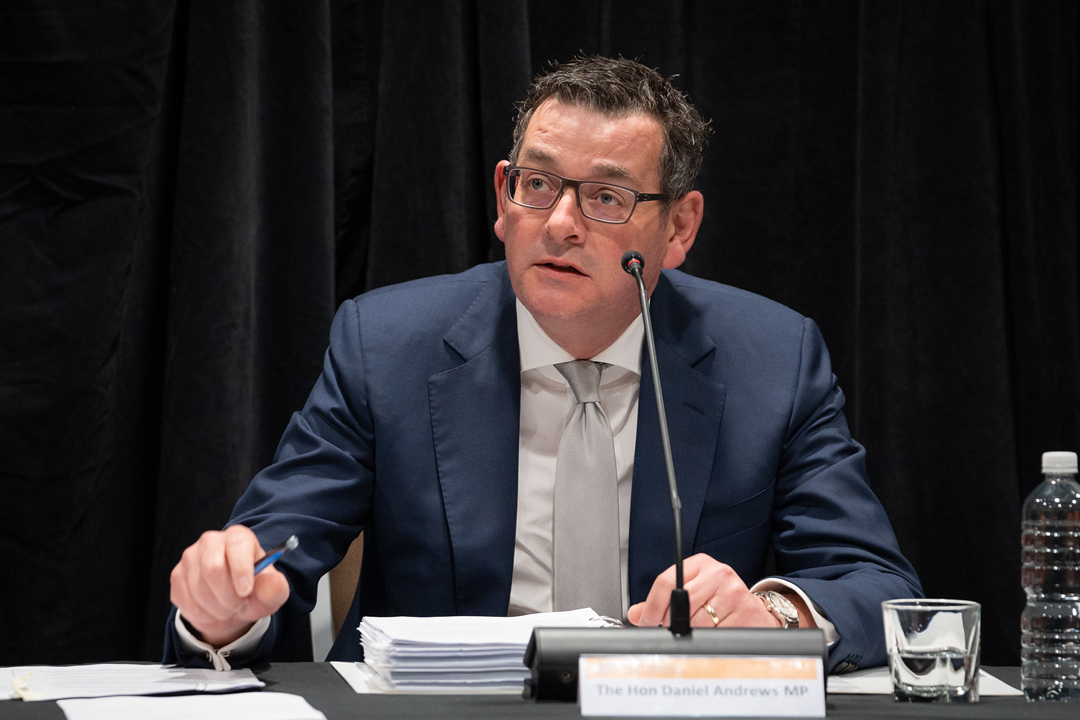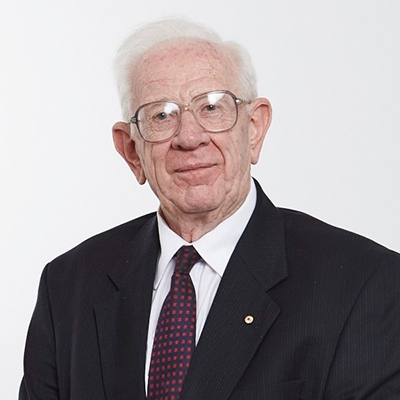

The Andrews Labor government in Victoria has received a great deal of criticism since it was re-elected last November. The most serious defect of that government became clear last week when it was revealed $380 million had to be paid to three Commonwealth Games organisations for the Victorian cancellation of the 2026 games. It is no wonder that Labor decided to avoid an electoral drubbing by not contesting last Saturday’s Warrandyte by- election, easily retained (with a massive increase in majority) by the Liberal Party’s candidate, Nicole Werner, who succeeds Ryan Smith (Liberal) in that outer north-eastern Melbourne seat. The two-party swing to the Liberal candidate against the relevant candidate of the left (Labor in 2022, Greens in 2023) was a substantial 17%, four times the average by-election swing.
However, my comment today is not about Victoria’s democracy in the short term. It is about whether Victoria’s politicians wish to continue with the present reputation its democracy must suffer – or whether Victoria would prefer to be described as the best democracy in the country. Victoria does not deserve the reputation of its democracy as being the worst in Australia. The fact remains. That is Victoria’s reputation.
I blame two men for Victoria’s bad reputation. Both men are psephologists of roughly equal distinction as yours truly – but with a very different take to mine on the virtues or vices of different electoral systems. The two men are Antony Green, Chief Election Analyst of the ABC, and Dr Kevin Bonham who lives in Tasmania. We disagree strongly about systems of proportional representation (PR). Essentially, Bonham and Green think such systems should be de facto party machine appointment systems. I think they should be candidate based, not party based.
I have two friends and allies, the Proportional Representation Society of Australia (PRSA) and Victorian psephologist Chris Curtis – but I have another de facto ally, the famous “preference whisperer” Glenn Druery. I defend him strongly. Bonham and Green denounce him just as strongly. To them any change the purpose of which is to drive Druery out of business is a “democratic reform”. I have a very different take. I am happy to see Druery driven out of business by the installation of a good new system – but not by the installation of a bad new system the sole purpose of which is to put Druery out of business.
This difference came to a head in 2016 when the federal parliament implemented a so called “democratic reform” of the Senate electoral system. The expression “democratic reform” is Bonham’s and Green’s, not mine. I think the federal politicians replaced a bad system by another bad system and the sole purpose of doing that was to drive Druery out of business.
So, what is the relevance of Victoria to this? The answer to my question lies in the way I classify the different Australian PR systems. There are two clear-cut cases of candidate-based PR systems, both called Hare-Clark. They apply to the election of members of the lower houses of Tasmania and the ACT. Then there are four clear-cut cases of party-based PR systems, for the Senate and the Legislative Councils of three states, New South Wales, South Australia and Western Australia.
Victoria, meanwhile, is neither one thing nor the other. I am determined that it’s Legislative Council electoral system must become candidate based. Bonham and Green seem equally determined that it must become party based.
These several men are presently engaged in a dispute before the Electoral Matters Committee of the Parliament of Victoria. Druery is nowhere to be seen but he looms as a ghost over the building. Bonham and Green want to drive him out of business quick smart by Victorian politicians bending to their will. I want Victorian politicians to instal a genuinely good new candidate-based system, the installation of which would have the effect of putting Druery out of business. My proposed system would be called Hare-Clark, but it would differ from the other two cases in one important way. More on that below. Curtis, the PRSA and I disagree with the Bonham-Green approach. To us Druery is not the villain he is painted to be by the Bonhams and Greens of this world – but he should be put out of business by the installation of a good new system. All of us have made submissions and appeared recently before the EMC to explain our views.
Green’s submission is revealing. He is at pains to say that he is not against Hare-Clark. He writes: “Hare-Clark works well in the small, geographically and historically established Tasmanian seats and in the city state of Canberra. The quota for election is around 10,000 votes, and the elections are for one chamber only.” He then goes on to say that the Victorian quota is around 80,000, Victorian elections are conjoint (that is, simultaneous for upper and lower houses) therefore Hare-Clark would not be appropriate for Victoria.
Virtually all the members of the PRSA agree with me in rejecting the contentions of Antony Green. There is no reason to think that the size of the quota is of any consequence. Nor is there the slightest reason to suppose that there would be any difficulty about holding Hare-Clark elections for the Legislative Council simultaneously with normal preferential voting ballot papers for single member Legislative Assembly electoral districts. The PRSA is run by people who are more charitable than I am. I think Green is trying to use his fame to hoodwink politicians into doing what he wants. Unfortunately, he has a huge fan club who are suitably taken in by him. There are far more submissions commending him than there are commending me.
Green’s recommendation is: “For consistency with past ballot papers and with Senate ballot papers, the current divided ballot paper should be retained with above the line voting for parties and below the line for individual candidate selection.” I don’t think that is a good way to describe any of these ballot papers. I describe them as “rigged”. In any event I think Victoria would be mad to seek consistency with bad ballot papers.
I wrote above of the important difference between my Hare-Clark proposal for Victoria and the two systems currently in operation. They have what is known as “Robson rotation”. Here both Green and Bonham are right in describing Robson rotation as “an artifice”. Green’s submission does not use the term “Robson rotation” but that is what he means. He refers rather to the “randomised listing of candidates on ballot papers” and writes that “it is an attempt to undermine party control of the order in which the party’s candidates are elected”.
This is where I differ from the PRSA. The PRSA leaders are indifferent between the ACT and Tasmanian versions of Hare-Clark. I want the Tasmanian Hare-Clark system without Robson rotation. Under my variation of Hare-Clark parties would still be able to hand out “how-to-vote” leaflets at polling places because the order of candidates would be the same on every ballot paper, both Assembly and Council. I see my proposal as a sensible middle between two extremes – and members of my fan club agree with me. Bonham and Green want systems of party machine appointment in which voters are told that the purpose of each vote is to help distribute numbers of party machine appointments between parties according to a PR formula.
Bonham and Green are more-or-less correct in describing the leaders of the PRSA who, I must agree, do wish comprehensively to undermine party machine influence on election results. Certainly, I am much closer to the PRSA than I am to Bonham and Green, but I do not wish unreasonably to make life difficult for the party machines. I do, however, want there to be fairness between candidates by making it just as easy to vote for this candidate as it is to vote for that candidate.
In my appearance before the EMC, I was able to give a satisfactory answer to every question and to counter every criticism of my genuine democratic reform proposals, but that doesn’t mean my proposals will be adopted during the current term of Victoria’s Parliament. It is far more likely that the EMC and the Andrews government will decide that no single “democratic reform” has the numbers – so do nothing.
I don’t want to make this personal, but I think Bonham and Green are the villains in this. They have proposed a method to put Druery out of business that is so outrageous it can never achieve what is known as “third-party validation”. My proposals can get that but instead I read from their submissions only disparagement of my model ballot papers and arguments about political parties that have no relevance in this circumstance.
This, then, is the paradox. Men who hate Glenn Druery keep him in business by denying to me the third-party validation I might otherwise achieve for my proposals. I do not hate Druery because I acknowledge that he has done a service to Australia’s democracy. He understood that the machines of big political parties had put into place contrivances for their own convenience. He also understood (uniquely) that those contrivances could be used to help minor parties “steal” upper house seats from big parties. Bonham and Green want to keep those contrivances that help big parties, but they demand the removal of the sole contrivance that helps small parties. I want to remove all contrivances and create voter friendly and honest ballot papers with simple instructions to voters creating the consistency I want – between the ballot papers for the Legislative Assembly and those for the Legislative Council.